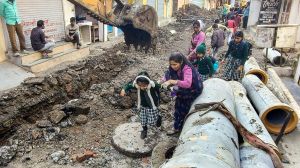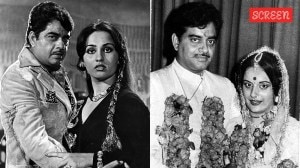5 charts that explain the new Lok Sabha’s average age, profession, education levels and more
Indicators such as the number of young leaders help get a better sense of the parliament’ composition. Here is what to know about the 18th Lok Sabha's Members of Parliament.
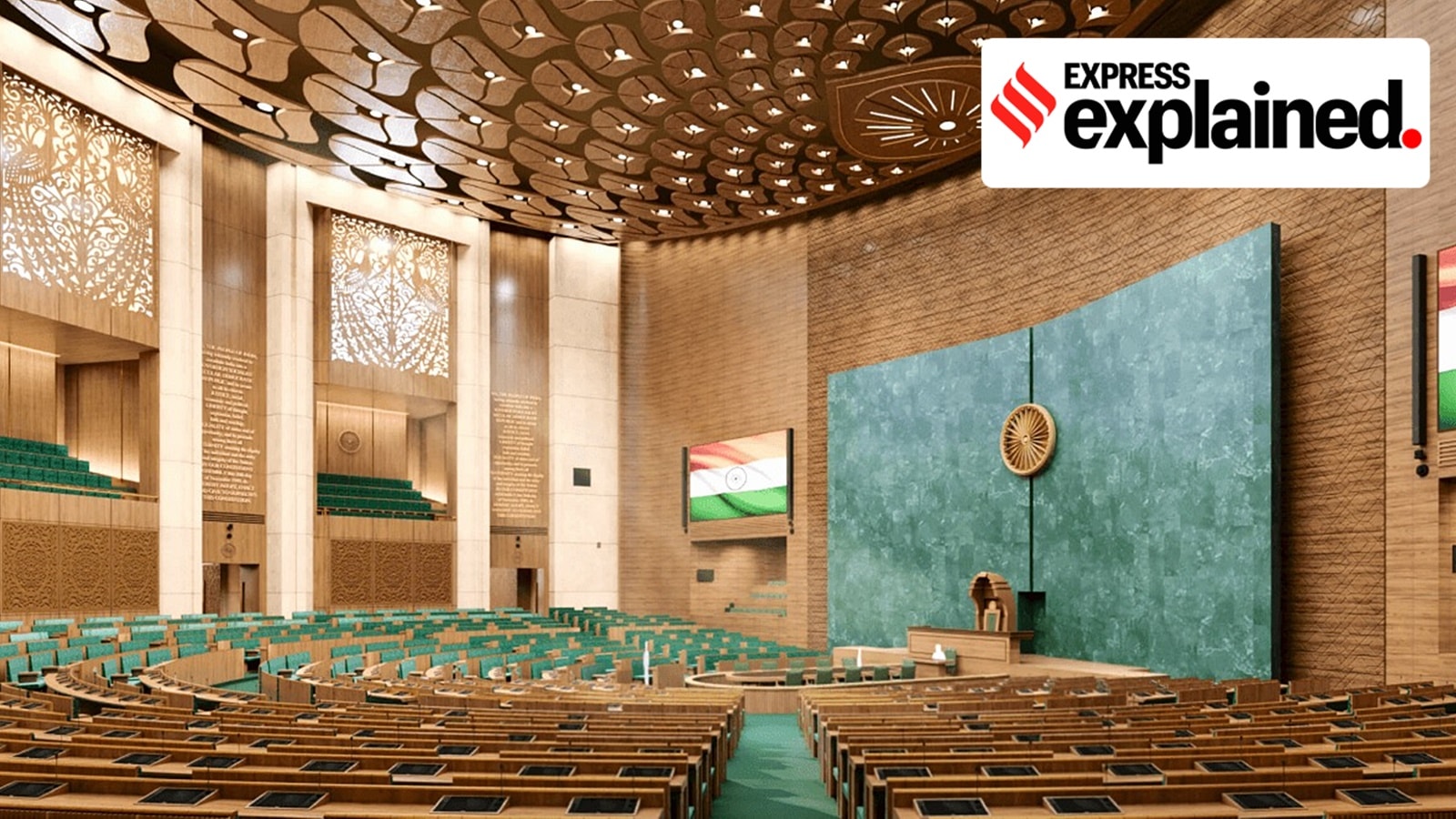 The Indian Constitution ensures that the legislature accurately reflects the electorate it is representing. (File photo)
The Indian Constitution ensures that the legislature accurately reflects the electorate it is representing. (File photo)The BJP-led National Development Alliance (NDA) emerged victorious in the 2024 Lok Sabha elections, with 293 MPs elected. The opposition Indian National Developmental Inclusive Alliance (INDIA) also performed better than what various exit polls had predicted, with its 232 MPs set to become a part of the incoming 18th Lok Sabha.
Members of Parliament play a crucial role as political representatives in a democracy, engaging in debates and discussing Bills on a range of policy matters. The Indian Constitution also ensures that the legislature accurately reflects the electorate it is representing, through the means of reservation of seats for Scheduled Castes, Scheduled Tribes and the Other Backward Classes.
The Women’s Representation Bill was also passed last year for reserving seats for women in the Lok Sabha and state legislative assemblies, given their historically lower participation in politics on account of structural barriers in society.
However, apart from representation in terms of caste and gender, there are other key indicators worth examining as well, such as the presence of young leaders, the education levels of MPs, etc. to get a better sense of the parliament’ composition.
1. How many first-time MPs will the 18th Lok Sabha have?
 First-time MPs in the Lok Sabha.
First-time MPs in the Lok Sabha.
2. Which parties have the most first-time MPs?
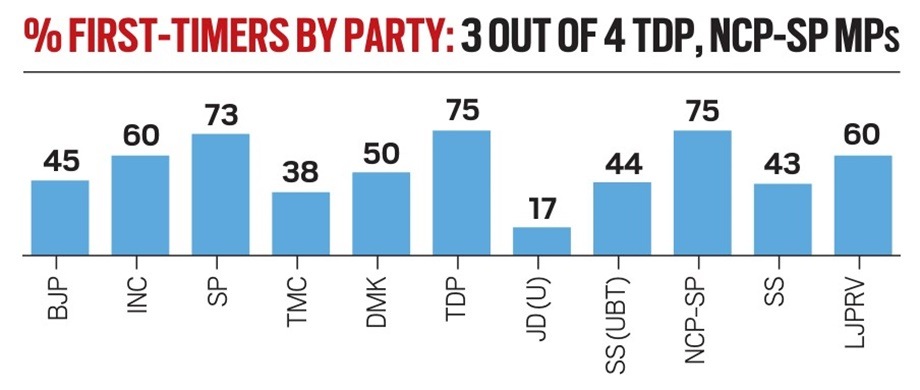 Party-wise first-time MPs (in terms of percentage).
Party-wise first-time MPs (in terms of percentage).
3. What is the age profile of the 18th Lok Sabha?
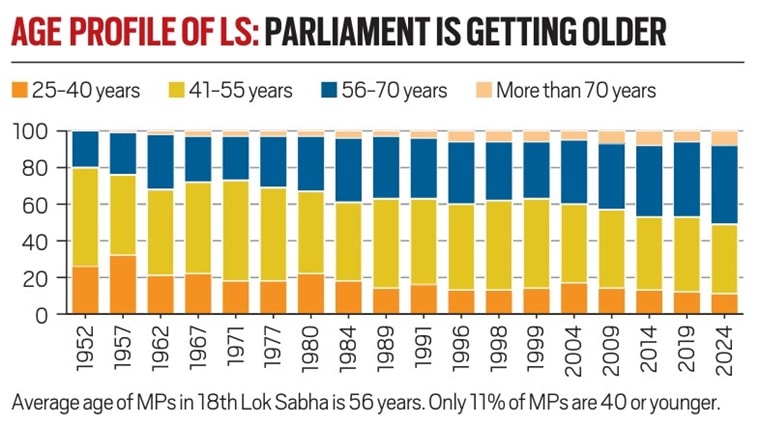 Age-wise composition of the Lok Sabha. The share of MPs aged between 56 and 70 years has been increasing.
Age-wise composition of the Lok Sabha. The share of MPs aged between 56 and 70 years has been increasing.
4. What is the educational level of the new Lok Sabha MPs?
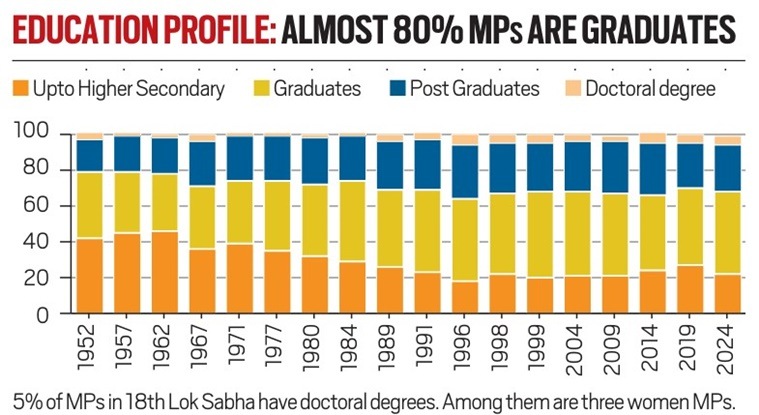 Education profile of the Lok Sabha.
Education profile of the Lok Sabha.
5. What professions are the MPs engaged in?
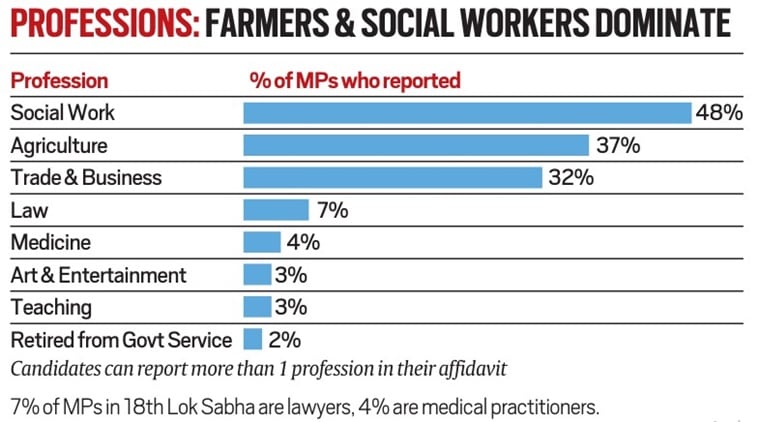 Profession-wise composition of the Lok Sabha.
Profession-wise composition of the Lok Sabha.
- 01
- 02
- 03
- 04
- 05












